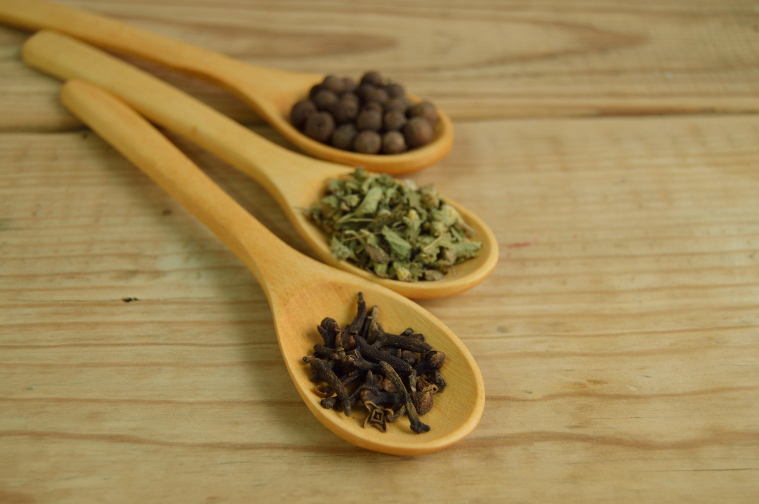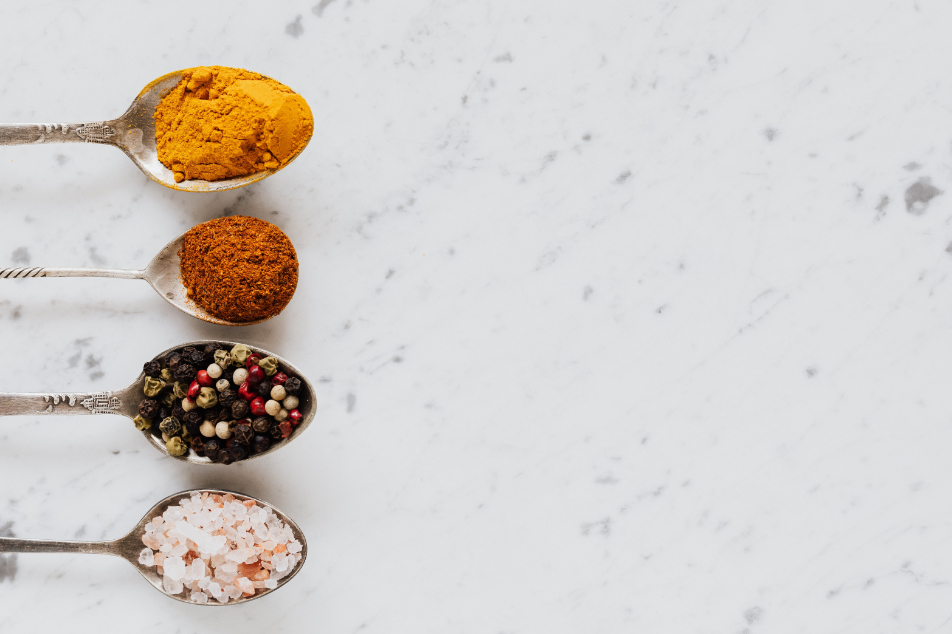
Cloves: The Spice That’s So Strong, It’ll Make You Feel Like You’re In Love.
Cloves were once used as a form of currency in Indonesia.
Cloves are the dried flower buds of the clove tree, Syzygium aromaticum. They are native to Indonesia and are one of the most popular spices in the world. Cloves have a strong, sweet, and pungent flavor that is often used in savory and sweet dishes. They are also used in traditional medicine to treat a variety of ailments.
Cloves are a good source of antioxidants, which can help protect the body against damage from free radicals. They also contain compounds that have anti-inflammatory and antimicrobial properties. Cloves have been shown to have a number of health benefits, including:
- Pain relief: Cloves can help to relieve pain, such as toothache and headache.
- Anti-inflammatory: Cloves can help to reduce inflammation, which can be helpful for conditions such as arthritis and asthma.
- Antimicrobial: Cloves have antimicrobial properties that can help to fight against bacteria and viruses.
- Digestive aid: Cloves can help to improve digestion and relieve nausea.
- Boosting the immune system: Cloves can help to boost the immune system and fight against infection.
Cloves are a safe and effective spice for most people. However, they should be used with caution in people with diabetes, as they can lower blood sugar levels. Cloves can also interact with certain medications, so it is important to talk to your doctor before using them.
Here are some ways to use cloves:
Whole cloves can be added to stews, curries, and other savory dishes. Ground cloves can be used in baked goods, such as gingerbread and pumpkin pie. Cloves can be made into a tea by steeping them in hot water. Cloves can be used to make a mouthwash by mixing them with water and salt. Cloves are a versatile and flavorful spice that can be used in a variety of ways. They are a good source of antioxidants and other nutrients, and they have a number of health benefits.
Benefits of eating cloves
-
Lowers blood glucose, and thus help diabetes.
-
Improves digestion.
-
Can relieve acidity.
-
Can lower cholesterol levels.
-
Fights tooth ache and bad breath.
-
Relieves chest congestion.
-
Can relieve joint pain and sore throat.
-
Good for skin health. Source: http://www.thehealthsite.com/diseases-conditions/top-10-health-benefits-of-clove-p214/
-
Has anti – inflammatory properties. Source: http://www.whfoods.com/genpage.php?tname=foodspice&dbid=69
-
Acts as an aphrodisiac and helps to keep men from reaching orgasm early.
-
Used in cigarettes to reduce the harshness of tobacco smoke (LOL on this one but I had to include it as a former gudang garam smoker. DO NOT CONSUME CIGARETTES, THEY ARE VERY INJURIOUS TO YOUR HEALTH) Source: http://www.webmd.com/vitamins-supplements/ingredientmono-251-clove.aspx?activeingredientid=251&activeingredientname=clove
Interactions that may be caused by consuming cloves
-
Cloves can interact with anti – coagulants. Source: http://health.in4mnation.com/clove-benefits-uses-side-effects/2/
-
Can interact with NSAIDs such as Ibuprofen and naproxen.
-
Clove oil can lower blood sugar levels.
-
Clove oil when applied to skin can lower the ability of skin to painful stimulation and hence can theoretically interact with lidocaine and other numbing agents.
-
Can interact with anti – helmintics, anti – fungals, anti – neoplastics, anti – seizures, anti –protozoals, anti – histamines, anti – spasmic agents and anti – virals.
-
Cloves can interact with immune regulating drugs.
-
Can interact with drugs toxic to kidneys and liver.
-
Can interact with estrogens and other fertility agents.
-
Can interact with drugs inhibiting tyrosinase and vasodilators.
-
Can affect the way the liver breaks down some drugs Source: http://www.hironsdrug.com/ns/DisplayMonograph.asp?storeID=000E24633A9F449CBFD60E75C207382D&DocID=bottomline-clove
-
Can interact with herbs such as ginger, garlic, angelica, danshen, ginkgo, red clover, turmeric, willow and others. Source: http://www.nlm.nih.gov/medlineplus/druginfo/natural/251.html#HerbInteractions
-
Can interact with drugs metabolized by cytochrome P 450 enzyme system. Source: http://www.lassens.com/ns/DisplayMonograph.asp?StoreID=v92hgbd7x6sr2lr60g03n0et9mr4bdf3&DocID=basic-interactions-clove
-
Shows synergistic effect with antibiotics against gram negative bacteria. Source: http://www.phytomedicinejournal.com/article/S0944-7113(09)00121-4/abstract
-
Can interact with capsaicin. Source: http://www.healthline.com/natstandardcontent/clove#3
Downsides of eating cloves
-
Taking large amount of cloves or clove oil can result in nausea, vomiting, abdominal pain, diarrhea, burns in throat and mouth, sore throat, seizures, difficulty breathing, rapid heartbeat, intestinal bleeding, liver or kidney failure.
-
Undiluted clove oil can cause skin irritation, rashes and burns if used on skin and damage to the gums and mucosa, if used on oral tissues. Source: http://www.cancer.org/treatment/treatmentsandsideeffects/complementaryandalternativemedicine/herbsvitaminsandminerals/cloves
Health conditions to avoid cloves
-
People with bleeding disorders must avoid taking cloves.
-
People with known allergy to clove or its compounds should avoid it.
-
Pregnant mothers must avoid cloves.
-
Young children should avoid cloves as even smaller doses can show adverse effects. Source: http://www.cancer.org/treatment/treatmentsandsideeffects/complementaryandalternativemedicine/herbsvitaminsandminerals/cloves
-
Cloves must be stopped before surgery.
-
Cloves must be avoided by people with kidney or liver disorder.
-
People with seizures must avoid cloves.
-
Diabetic patients must use cloves with caution. Source: http://www.healthline.com/natstandardcontent/clove#2
Photo by Miguel Á. Padriñán: https://www.pexels.com/photo/vegetables-and-beans-on-brown-wooden-measuring-spoon-68563/
NOTE: The information on this website is for educational purposes only and is not intended to replace the advice of a qualified medical professional. If you have any questions or concerns about your health, please consult a doctor. We do not endorse any specific products or treatments, and we do not claim to cure or treat any medical conditions. The information on this website is based on our own research and experience, and we cannot guarantee its accuracy or completeness. View the full disclaimer here


